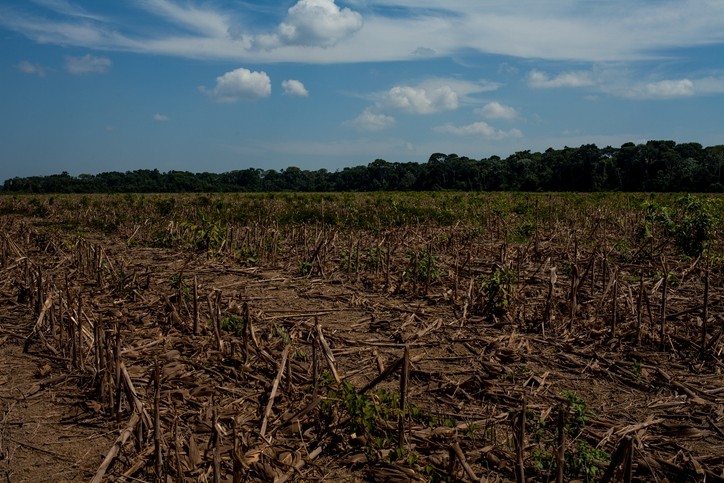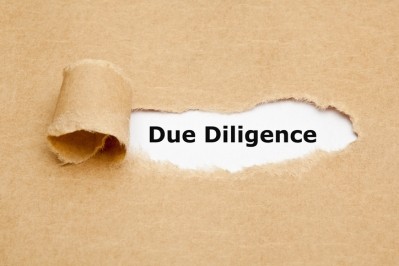Danish Crown moves to ensure its soy value chain is deforestation-free as report calls out the company on its soy sustainability policies

By 2025, the pigs of its owners will receive soy that comes from producers who can prove that their production is sustainable, and on farmland that hasn’t been used after illegal clearing of the Amazon rainforest, said Danish Crown.
The company’s action plan was released as a new report is published by Rainforest Foundation Norway, Mighty Earth , and Forests of the World charting the alleged connection between Danish Crown’s soy value chain and environmental destruction in South America.
The organizations behind the publication also call out Danish Crown for what they term its failure to offer a guarantee that the soy in its supply chain has not caused deforestation, and its failure to aggressively implement soy sustainability policies. They urged the company to ensure full traceability of the pig dietary component in its action plan for responsible soy.
“As Europe’s largest pork producer, Danish Crown has a huge responsibility to ensure that the soy that goes into Danish Crown’s production is produced responsibly,” said Forests of the World campaign director, Gry Bossen. “As long as it does not know where the soy in its supply chain comes from, it cannot avoid being complicit in deforestation and violation of indigenous peoples’ rights in South America. Danish Crown should clearly ensure that its demands and value chains from South America are deforestation-free.”
Danish Crown must be held responsible for the environmental destruction associated with its entire supply chain, said Mighty Earth deputy director, Kristin Urquiza. “It is not enough for Danish Crown to pledge a commitment to sustainability. We need to see the company’s sustainability policies aggressively implemented on the ground. Consumers do not want to eat pork products linked to forest fires, tropical deforestation, and human rights abuses.”
A spokesperson for Danish Crown told FeedNavigator today that it is important to stress that it, as a company, does not import soy or soy products directly.
Nevertheless, the company can strongly influence the direction of the supply chain.
Preben Sunke, COO at Danish Crown, noted that the ability to distinguish responsibly produced soy from other soy production in South America remains limited.
"Danish Crown will help to change that. It will take time to get the definitions in place for areas that have not been deforested in violation of international agreements."
However, the COO said the company is confident that it will be done and that, by 2025, all the soy Danish Crown's owners buy and use for their pigs rations will be produced in both "sustainable and sound ways."
Annual soybean imports to Denmark in 2019 came to 1.7m tons, or around 0.5% of the world's total production of soy. Of the 1.7m tons, around 0.9m tons is for pig feed in Denmark. Danish Crown's owners account for 38% of Danish pig production.
Source: Danish Crown
FEFAC soy sourcing guidelines
“While it is Danish Crown's plan that all soy in the feed of Danish Crown's owners in 2025 contains responsibly produced soy, in 2020, Danish Crown will, on behalf of its owners, secure FEFAC-certified soy in increasing amounts, and along the way we will buy credits which support the production of responsible soy.
“Until the physical supply lines of responsible soy have been established, Danish Crown will from October 1, 2020 supplement the actions with the purchase of RTRS or RTRS-equivalent credits which guarantee that no deforestation, whether illegal or legal, is taking place in sensitive forest areas. At the same time, we will work to establish a Danish industry solution where, as a combined industry, we will work for full FEFAC sustainable soy in 2025,” continued Sunke.
Danish Crown said it has chosen to prioritize a collaboration with FEFAC to ensure full traceability in the physical deliveries of soy. In this way, responsibility is taken for the total value chain and this ensures a sustainable production of sustainable soy, it said.
Danish Crown estimates that the additional cost for it using responsible soy through the planned program from the start will cost around 0.75 DKK per slaughtered pig.
However, Sunke said the company also knows that sourcing of responsible and sustainable soy does not happen overnight, but to reach the goal, Danish Crown is demanding improvements to the criteria that FEFAC enforces.
“We want to make real improvements in the countries and regions with which we trade. We can do this best if we make demands on the goods our owners receive, and directly on the manufacturers.
“Danish Crown expects FEFAC to implement an unambiguous and widely-recognized deforestation policy by 2025, with clear guidelines that protect against both illegal, and in some instances, legal deforestation, and which are third party-verified, with full traceability throughout the chain.
“Producing soy must not result in deforestation or restructuring of other habitats with high conservation value,” he added.








